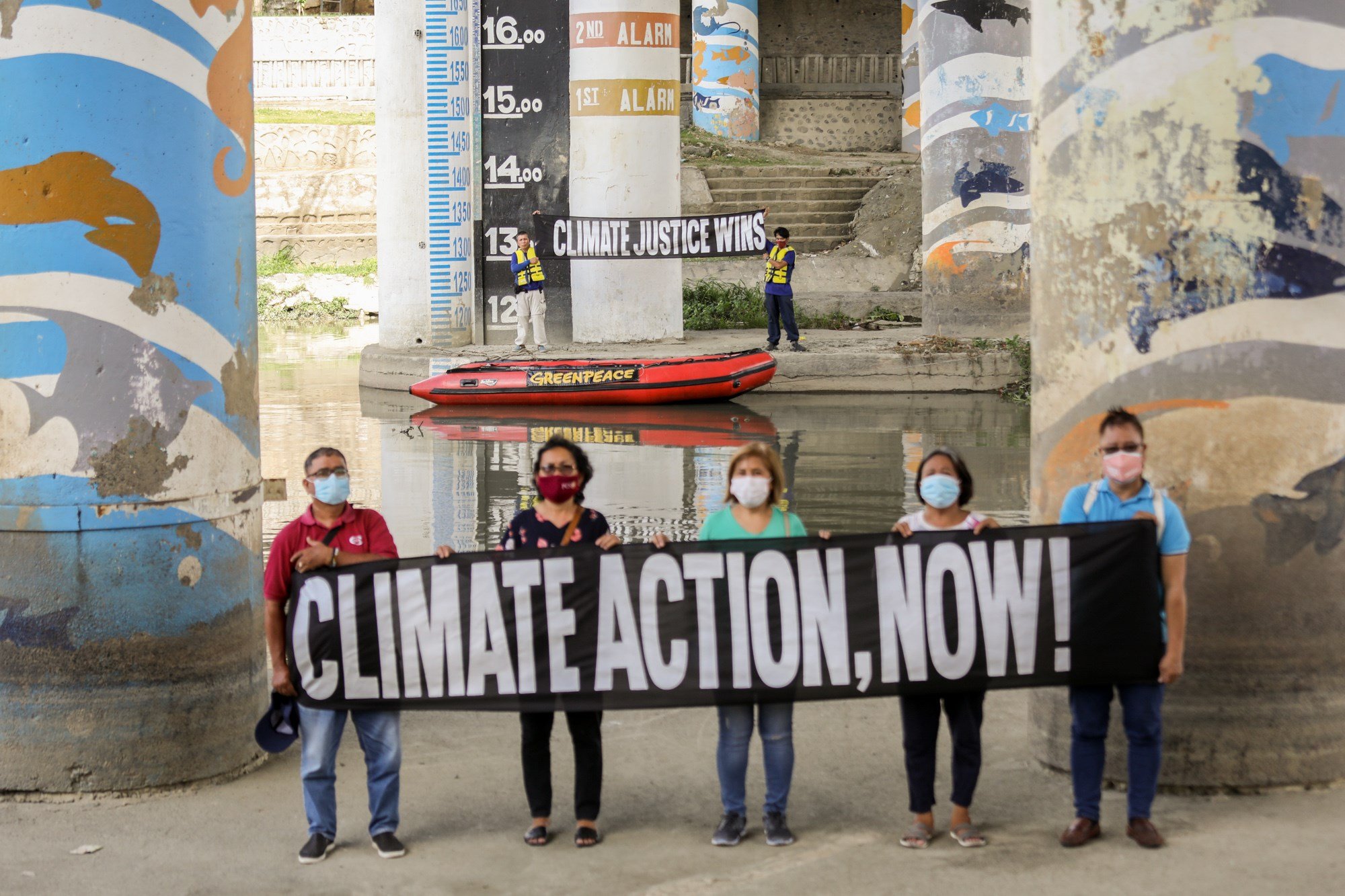Growing trends show Global South turning to climate litigation - UNEP
Climate lawsuits are becoming more common in several nations.
-

UNEP study shows growing trends in climate litigation within the Global South (Greenpeace Philippines)
The United Nations Environment Programme (UNEP) identified 1,550 cases of climate litigation across 38 nations in its Global Climate Litigation Report: 2020 Status Review.
In UNEP's 2017 report, the total number of cases pertaining to climate litigation issues was 884, revealing that the number of cases has now nearly doubled.
In the last eight years, over 1,200 cases of climate litigation were filed in comparison to just over 800 from 1986 to 2014, according to the 2022 Global Trends in Climate Change Litigation report by researchers at the London School of Economics and Political Science.
Climate lawsuits are becoming more common in several nations. 1,200 cases in the US and 350 cases in the rest of the globe were among the 2020 cases included in the UNEP study. Currently, there are around 1,440 people in the US and 580 people abroad.
Joana Setzer, an assistant professorial research fellow at the Grantham Research Institute and one of the authors of the Global Trends report, which showed comparable statistics, stated that climate litigation is now emerging in various nations, including in the Global South. Of the 2,002 completed or continuing cases in its database, 1,426 were filed in the United States, with the remaining 576 occurring overseas, including 88 in the Global South.
Pakistan is ground zero for climate tragedies
Developed countries, which are responsible for a huge, disproportionate share of emissions and are predominantly to blame for the ongoing climate crisis, have gone back on their word about reducing emissions and helping their developing counterparts with adapting to global warming, Pakistani Minister for Climate Change Sherry Rehman told The Guardian.
Rehman's words came in light of more than 1,200 people dying due to monsoon rains and flash floods that brought Pakistan under water after Islamabad reported weeks earlier that it was suffering from a serious drought.
The Pakistani minister underlined that rich countries were due to pay up for their actions, demanding reparations for their action, as well as that their global emissions targets be met given the horrible conditions in developing countries such as Pakistan.
"Global warming is the existential crisis facing the world and Pakistan is ground zero – yet we have contributed less than 1% to [greenhouse gas] emissions," Rehman explained. "There is so much loss and damage with so little reparations to countries that contributed so little to the world’s carbon footprint."
The monsoon rains caused unprecedented flooding in Pakistan, which collapsed more than 200 bridges, damaged more than 3,000 miles of telecom lines, and affected at least 33 million people. The number of those affected is expected to increase, as authorities are yet to complete their damage surveys.
Rehman stressed that her government will do everything possible to rescue and aid the Pakistani people, though their efforts have been impeded by rainfall and the vast number of people affected.
"Richer countries must do more," she stressed.
Fossil fuel corporations are also being called on to pay for the damages they are causing to the climate in a proportionate manner, especially in light of the amounts of money they have been making throughout the Ukraine war.
"Big polluters often try to greenwash their emissions, but you can't walk away from the reality that big corporations that have net profits bigger than the GDP of many countries need to take responsibility," Rehman underlined, reiterating what UN Chief Antonio Guterres previously said.
Read more: WHO: Pakistan at risk of major disease outbreak following floods

 4 Min Read
4 Min Read









